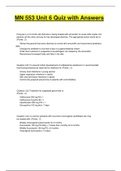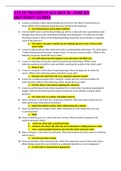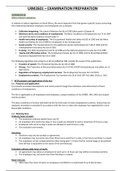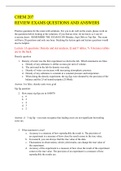Notes de cours
Microeconomics full course notes!
- Cours
- EC11
- Établissement
- ESCP Europe (ESCP)
A comprehensive, full set of notes for Microeconomics with definitions, descriptions, graphs, diagrams, tables, questions with answers and more. The notes provide all information from the lectures, seminars and textbook.
[Montrer plus]










